
Rotator cuff tendinosis is a very common cause of shoulder pain. Your rotator cuff tendons control the motion of your shoulder joint. They are four very important muscles and their structure can change with age, or because of your activities.
What is Rotator Cuff Tendinosis?
Tendinosis of the rotator cuff is a degenerative (genetic, age or activity related) change that occurs in our rotator cuff tendons over time. Rotator cuff tendinosis is exceptionally common. Although many people with shoulder pain will be found to suffer from tendinosis. Many, many people have tendinosis of the rotator cuff and do not even know it. Why rotator cuff tendinosis bothers some people and doesn’t bothers others is currently a question the orthopedic surgery community can not answer. Rotator cuff tendinosis is just as likely to be found in a professional body builder as it is likely to be found in a true couch potato.
What does Rotator Cuff Tendinosis Look Like?
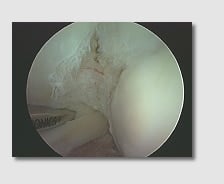
Tendinosis represents a structural change in the tendon at a microscopic level. This results in disorientation of the tendon structure and, ultimately, partial tearing as the weakened tendon gives way. The analogy I always use is your favorite pair of blue jeans. You wear them for years and then one day you feel a breeze down by your knee — you look down and there’s a hole. No trauma, no accident… the fabric just wore out.
Therefore, rotator cuff tendinosis is not the result of a single traumatic event. It is brought on by genetics, age and repetitive activity. We are not sure why some patients with rotator cuff tendinosis have pain, and others do not.
How Do We Treat Rotator Cuff Tendinosis
Many patients with rotator cuff tendinosis and partial tears do not require surgery and will respond very well to a coordinated physical therapy program to strengthen the remaining cuff tissue. Moist heat, Ice and anti-inflammatories can work well, too.
Rotator cuff tendinosis is a biological problem … our body is actually changing the tendon tissue. Only very recently have treatment techniques evolved to enable us to treat rotator cuff tendinosis that fails to respond to non-surgical measures. It is a technology developed by Rotation Medical and enables us to place a “bioinductive” patch over the area of tendinosis, which over a period of a few months has been shown to reverse the degenerative changes and heal your tendon.
Over time, this patch will incorporate into the tendon and alter the structure of the tendon. Most patients .. in our series to date, have had significant relief, even after trying other surgical procedures first which had failed.
You can read more here about this approach to treating shoulders with rotator cuff tendinosis.
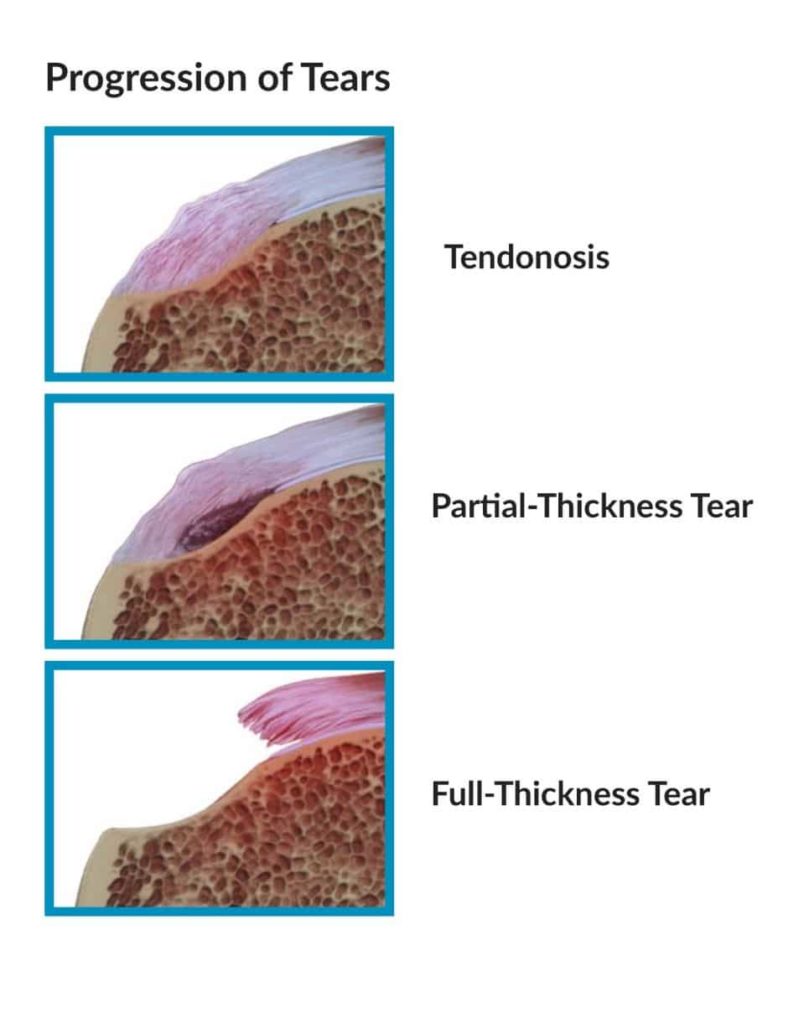
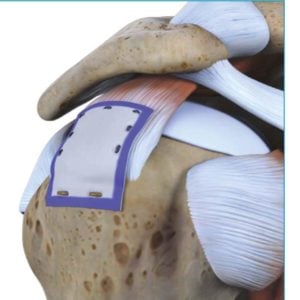
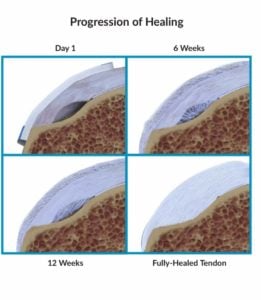




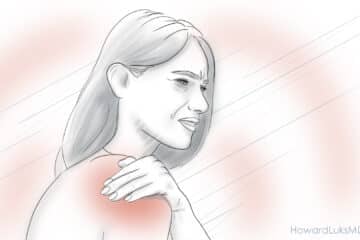

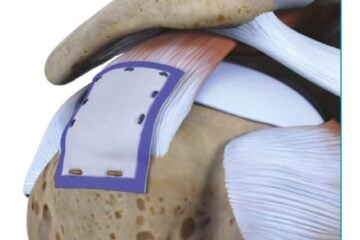







Thank you for this helpful information. I live in Westchester county and recently had an MRI that revealed rotator cuff tendinosis with a small partial thickness articular surface tear infraspinatus and minimal partial thickness tear supraspinatus with no full-thickness tear. I will be following up with my doctor next week but wondering if you could offer a second opinion based on this MRI or if I would need another.
HI Chris… We will not likely need a new MRI. I would be happy to see you.. .we are on Bradhurst Avenue in Hawthorne. 914-789-2735
Howard Luks
Hello,
I am a 56 yo extremely active nurse. I run marathons and half marathons as well as competing in other distances. I also lift weights but haven’t lifted heavy in years. I had chemotherapy and radiation for breast cancer 8 years ago. Had shoulder pain three years ago w a large rotator tear. Had surgery and didn’t go well. Surgeon had to go back to repair things at six months. Thinking radiation had a part in this. I’ve had opposite (good shoulder) shoulder pain for a year w cortisone inj twice into shoulder capsule via ultrasound. Mid December intense pain wo relief after cortisone and bicep pain as well as rotator sleepless nights. Backed off push ups and pull ups and had a MRI arthrogram.
Report is as follows. High grade near circumferential tear of glenoid labrum. Thinning of cartlidge w superficial fibrillation at the glenoid humeral head motion defect disallows detailed cartlidge anatomy.
Severe AC joint osteoarthritis w loss of normal subacromial fat. Subacromial sub deltoid bursitis.
Tearing of the biceps labral anchor. Severe intra-articulate biceps tendonosis w intra substance tear. Medial subluxation of proximal biceps tendon. Biceps tendon is present win the groove and shows severe tendonosis and intra substance tear most prominent at its proximal aspect.
Rotator Cuff: supraspinatous high grade full thickness tear. Insertion fibers intact and a separation of 2.2 cm between the torn margins which are frayed and irregular. Measures 1 cm in anterior posterior dimension. Severe supraspinatous tendonosis. Mild muscular atrophy. Partial thickness Infraspinatous articulate sided tear if the conjoined tendon. There’s minor is normal. High grade full thickness tear of the subscapularisw severe tendonosis. Normal marrow.
Waiting to see orthopedic surgeon. Pain is intense. Last two weeks unable to lift my arm. When I do bend my arm at elbo intense bicep pain. I do not take pain meds or NSAIDs. Just wandering if they can patch these tendons w major multiple tears and how so they great the labral tears and arthritis. Realize the osteo is a remnant of having chronic tears for a long time. I am 5’9 and 125 lbs extremely for and just need to run. I really don’t want to hear the words reverse shoulder replacement. What are your thoughts with these results. Also could 6 months of chemotherapy and radiation caused some of this damage. Thanks for your time.
Hi …
This is a complicated case. You have many potential pain generators. Without examining you I cannot offer specific treatment advice. This should be used more as an education and serve as something to assist you with your research and with your discussion with your doctor.
Given the OA, the labral tear can likely be ignored (most labral tears at our age can be ignored). The rotator cuff issues appear to be relatively straightforward and repairable. Often times we will place the patch over a more traditional repair. The subscapularis might require a small open procedure. Given the medial subluxation and degeneration of the biceps your surgeon might recommend a biceps tenodesis. In order to bypass all the degeneration in your biceps many would choose a sub-pectoral tenodesis.
Good luck !
I have a full thickness tear of my posterior supraspinatus right side. I opted for autologous stem cell/prp treatment to try to avoid surgery. It’s been 6 weeks, and I have now lost all internal rotation and my pain is severe. Went back to the doctor who did an US and he found biceps tendon effusion. I feel I am way worse than before the therapy both in terms of pain and range of motion. The doctor wants to do more PRP injections which I am open to, but am afraid that things might be made even worse. I don’t know what to do at this point. Any suggestions?
Early in the process of developing a frozen shoulder people will have pain, but no loss of motion. As the weeks go by they lose motion and have pain as well. Perhaps you should see a second opinion or your first Orthopedist to determine if you have a frozen shoulder… which is not typically treated with PRP. This post on frozen shoulders might be worth reading…. https://www.howardluksmd.com/orthopedic-social-media/frozen-shoulder-diagnosis-options-treatment/
Your website was very informative. According to a recent MRI, I have severe tendinosis of the supraspinatus tendon trace partial-thickness articular surface tearing at its insertion and severe tendinosis of the distal infraspinatus tendon with a small articular surface tear at its insertion. A small amount of delamination is also noted. The remaining cuff tendons are normal.
I also have full-thickness cartilage loss at the anterior inferior glenohumeral joint. Moderate cartilaginous thinning w/o focal defect throughout the remainder of the glenohumeral joint.
I was especially interested in the “bioinductive” patch treatment you reference on your site. Given the description of my problems would I be a valid candidate for that kind of treatment?
Perhaps… certainly something worth talking about with your surgeon.
Dr. Luks,
I have a tear in my rotator cuff, and a torn lining in my left shoulder. In my right shoulder, I have a torn ligament, bursitis, tendonitis, and arthrosis. I’m attending therapy sessons at the moment. If the therapy sessons don’t heal these problems, and my orthopaedic surgeon is not familiar with the patch process that you use, will you accept an out of state patient to receive this surgery?
Yes, we have helped out many from around the US and abroad.